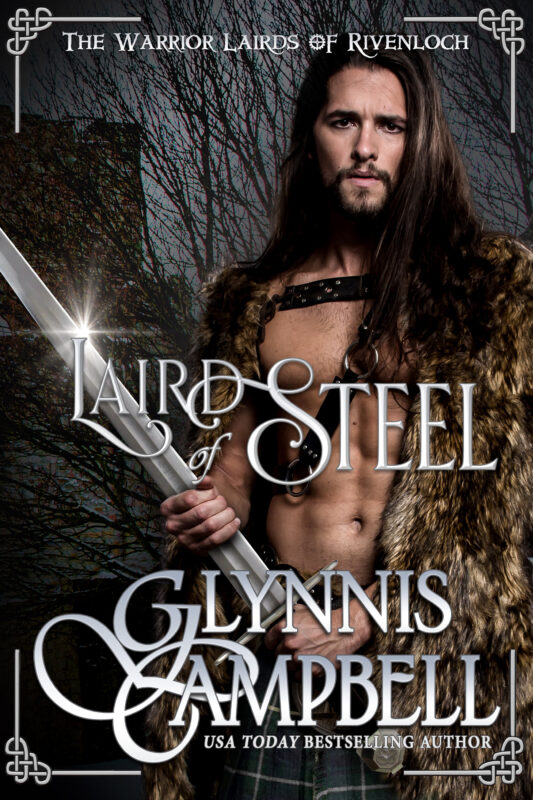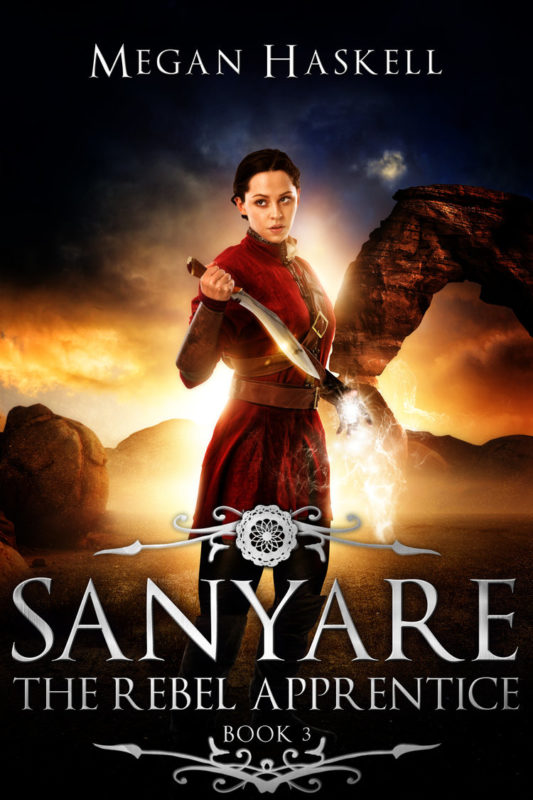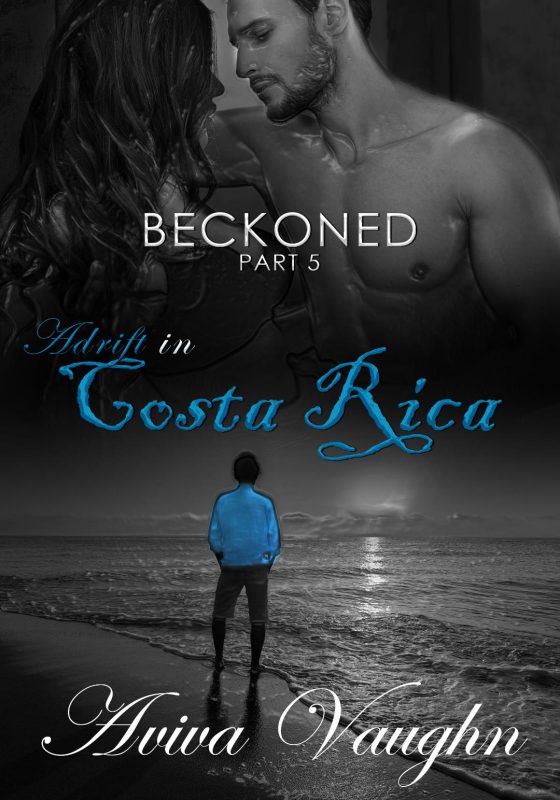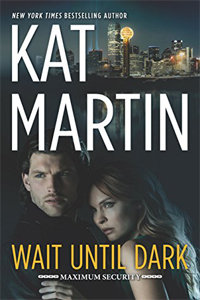Read what you like
April 28, 2008 by A Slice of Orange in category ArchivesI read on Publisher’s Lunch the other day that Harris International did a poll of American adults and asked, “What is your favorite book of all time?†The answers:
1. The Bible
2. Gone with the Wind, by Margaret Mitchell
3. Lord of the Rings (series), by J.R.R. Tolkien
4. Harry Potter (series), by J.K. Rowling
5. The Stand, by Stephen King
6. The DaVinci Code, by Dan Brown
7. To Kill a Mockingbird, by Harper Lee
8. Angels and Demons, by Dan Brown
9. Atlas Shrugged, by Ayn Rand
10. Catcher in the Rye, by J.D. Salinger
Wow, I was shocked – first, because 4 of my top favorites were there (2,5,7 & 9.) Second, because there wasn’t one “literary work†listed (not counting the Bible – I’m not going to attempt to categorize that.)
In my humble opinion, this tells us several things about the American reader: First, obviously reading is not dead. The fact that none of these were comics tells us people are still reading, and not at a low level. They didn’t publish the demographics, so I don’t know whom they asked, but Harris is an esteemed poll, so I’m going to assume it was a true cross-section of the population.
Next, in spite of critics, ivory-tower professors and snobs, “literary works†aren’t as well loved as a good, a old-fashioned yarn. After all, I don’t see Faulkner or Hemmingway on that list – not even Jane Austen! What I see all the above have in common is that they’re great stories, told in a colorful and straightforward manner. I’ve always had the secret belief that “literary fiction†(apologies to my friend Ann who swears the term doesn’t exist) is what people buy as a “coffee table book†to leave around the house to impress their friends with what they’re reading (but don’t.)
Now don’t misunderstand me, I really enjoy Steinbeck, Twain, Dickens and others. I’m just saying that they don’t make my top ten list, and apparently not others’ either. What’s wrong with popular fiction? Given the stats on how many books the average American reads per year, shouldn’t we be happy they are reading anything?
Read what you like – proudly
A Fantasy Life
April 27, 2008 by A Slice of Orange in category A Fantasy Life by Janet Cornelow tagged as Janet Cornelow, Janet QuinnWhen writing fantasy, sometimes something out of mythology can trigger and idea that is just too good to pass up. A chimera seems to be one of those things.
What Inspires You
April 25, 2008 by A Slice of Orange in category Archives tagged as What Inspires YouONE
by Lori Pyne
He entered the last grades with a sigh. Few, other than the excepted, achieved high marks. Each topic on the test had been discussed, reviewed and studied at least five different times, five different ways. Participation from each student had increased. He had been certain that this test would display the beginning of marked improvement.
The results refuted that supposition.
As he rose from his seat, he dropped his partially eaten lunch in the trash. He would discuss the outcome with his master teacher after the meeting. With the semester half way finished, he did not have much time to get through to these kids.
He locked the door as he left the classroom. Turning his thoughts to the upcoming meeting, he wondered how it would feel to sit on the other side of the table. Although he had attended numerous individual education plan meetings as a parent for his son, this would be his first time attending as a teacher.
A group gathered in the hall outside of the conference room. As he walked into the room, one of the women said an IEP is a legal document and not something to just ignore. A viewpoint he shared strongly, having seen the strides his son had maded with the help of the modifications.
He sat at the table and nodded to his master teacher seated next to him. As he turned to tell his master teacher about the disappointing test results, the group from the hall streamed into the room. The dark haired woman, who has commented on the legal status of an IEP, remained standing before the table.
“Is the student teacher here?” she demanded.
He raised his hand. He and his master teacher exchanged a glance. His master teacher raised and eyebrow and shook his head.
“Before we start, I have to tell you something.” He felt his stomach tighten. The image of her son flashed in his mind. “I don’t know what you’re doing.” The principal stood and began to speak. The woman held up her hand. “My son’s constantly quoting you and is actually doing homework for your class. He hasn’t taken an interest in school since preschool. Whatever you’re doing, keep doing it.”
He felt as if he had been struck by lightning.
“Thank you,” he said through the lump in his throat.
“No, thank you.” She sat in the chair beside the principal. “Let’s hope that some of his newly found excitement spills over to his other classes.”
One. At least he now knew he had reached one. He had until the end of the school year to reach the rest.
______________________________________________________________
Lori Pyne is a member of OCC, and a multi-tasking volunteer. She is currently serving as one of our Online Class Moderators, Guest Reception Coordinator and Coordinator for the Book Buyers’ Best Contest for published authors. She is married with one son, and works full time for an entertainment law firm.
e-maginings: Celebrating the Bard of Avon
April 24, 2008 by A Slice of Orange in category Archives tagged as e-maginings, William Shakespeare Today is the 392nd anniversary of the death of William Shakespeare on April 23, 1616. April 23 may also be his birthday, but no one knows for sure. We do know he was christened on April 26, 1564.
Today is the 392nd anniversary of the death of William Shakespeare on April 23, 1616. April 23 may also be his birthday, but no one knows for sure. We do know he was christened on April 26, 1564.
In any case, the bard seemed like a good topic for today’s blog. After all, he was one of the most influential writers of all time, though not much is known about his personal life. He was very prolific and is credited with having written 38 plays, 154 sonnets, and a few other poems.
About 150 years after his death, some people began to doubt that his works were really written by a more learned man. Francis Bacon, Christopher Marlowe, and Edward de Vere, the Earl of Oxford, were all suggested, but as they were all dead… Scholars dismiss these doubts, though speculation continues. I guess we’ll never know.
Shakespeare has probably given us more famous quotes and common sayings than any other writer. Here are a few that should seem familiar.
“This above all: to thine own self be true”. – Hamlet (Act I, Scene III).
“All the world ‘s a stage, and all the men and women merely players. They have their exits and their entrances; And one man in his time plays many parts” – As You Like It (Act II, Scene VII).
“Can one desire too much of a good thing?”. – As You Like It (Act IV, Scene I)
“The devil can cite Scripture for his purpose”. – The Merchant of Venice (Act I, Scene III).
“He hath eaten me out of house and home”. – King Henry IV, Part II (Act II, Scene I).
“The better part of valour is discretion”. – King Henry IV, Part I (Act V, Scene IV).
“The first thing we do, let’s kill all the lawyers”. – King Henry the Sixth, Part II (Act IV, Scene II).
“But, for my own part, it was Greek to me”. – Julius Caesar (Act I, Scene II).
“Cowards die many times before their deaths; The valiant never taste of death but once.” – Julius Caesar (Act II, Scene II).
“I bear a charmed life”. – Macbeth (Act V, Scene VIII).
“All the perfumes of Arabia will not sweeten this little hand.” – Macbeth (Act V, Scene I).
“I will wear my heart upon my sleeve for daws to peck at”. – Othello (Act I, Scene I).
“I have not slept one wink.”. – Cymbeline (Act III, Scene III).
“My salad days, when I was green in judgment.” – Antony and Cleopatra (Act I, Scene V).
“We are such stuff as dreams are made on, rounded with a little sleep”. – The Tempest
“The course of true love never did run smooth”. – A Midsummer Night’s Dream (Act I, Scene I).
“Love looks not with the eyes, but with the mind, and therefore is winged Cupid painted blind”. – A Midsummer Night’s Dream (Act I, Scene I).
For more on Shakespeare’s life and words, here are some links:
http://absoluteshakespeare.com/trivia/quotes/quotes.htm
http://en.wikipedia.org/wiki/William_Shakespeare
http://www.shakespeare-online.com/biography/
http://absoluteshakespeare.com/trivia/biography/shakespeare_biography.htm
Linda
Advice to Myself as a Newbie Author
April 22, 2008 by A Slice of Orange in category Archives tagged as Advice to Myself as a Newbie Author, Cait London, Lois Kleinsasserby Shauna Roberts
http://ShaunaRoberts.blogspot.com
Today’s Guest: Lois Kleinsasser writing as Cait London
Cait London is published in 28 countries and has written more than 60 books—historicals, category and series, paranormal, and romantic suspense—under the pseudonyms Cait London and Cait Logan. Her newest book, published by Avon, is A Stranger’s Touch. It is the second in a trilogy about three sisters who each has a special extra sense that may be a blessing or a curse.
Cait, if you could travel back in time to before you were first published, what advice would you give yourself?
 Because it’s best to address issues from experience, I am writing from the POV of a traditionally published mass-market author. Since I started writing, the Internet has made a terrific difference in learning how to write and in gathering necessary business skills. The Web has also broadened the playing field and sharpened the competition. Career writing, the markets, the publishers, and the general ball game have changed drastically, ever evolving. But in the (my own) beginning, I wish I’d known the following, which I offer with huge disclaimers.
Because it’s best to address issues from experience, I am writing from the POV of a traditionally published mass-market author. Since I started writing, the Internet has made a terrific difference in learning how to write and in gathering necessary business skills. The Web has also broadened the playing field and sharpened the competition. Career writing, the markets, the publishers, and the general ball game have changed drastically, ever evolving. But in the (my own) beginning, I wish I’d known the following, which I offer with huge disclaimers.
1. Writing can be a fulfilling career. Surprise, surprise. Unlike others, who have wanted to write since childhood, I began writing in my thirties. I did not intend to be a full-time writer, yet I have been for many years and am still thrilled. Originally, I just wanted to see my name on a cover—just once.
2. Why her and not me? Another surprise: Writing is a business, perhaps more now than ever. It’s not all about a good book. “Building and the long haul†are facets a publisher may consider, not necessarily the story. Today, a publisher may look at developing one writer over another for their promotability. Sometimes, the writer is chosen because he/she has many stories in them or can write quickly.
3. A rejection may have nothing to do with the quality of the story. It may have more to do with the publisher’s budget or another writer filling that slot already. It may have to do with being “orphaned†or the line dying, etc. The line-up is a huge consideration in publishing.
4. On occasion, I wish I’d used these words: “Thank you for the offer. I’d like to think about it. I’ll get back with you.†(Usually, with business flowing as fast as it does, the time lag is just overnight.) The reason? One wrong agreement can set back or stop your career for years. It’s best to consider each agreement carefully. This advice is especially applicable in the case of agency agreements.
5. Spend more time in editing each individual word, the placement of clauses within sentences, and the structure of a paragraph. The structure of a paragraph is important. I learned to place numbers over each sentence and to rearrange them in order.
6. Don’t compare. A published book has gone through many eyes and has been revised and edited many times. To compare that book with your own unpublished drafts is an apples-and-oranges game.
 7. Important: Getting away from the desk and computer is essential to refill the well.
7. Important: Getting away from the desk and computer is essential to refill the well.
8. It took some time to learn this one: The editor isn’t always right. Admittedly, I have written to editorial calls and have not been happy with the result. However, when you’re starting out and trying to build, they are always right. ☺
9. I am only as good as I can be. Others have more, or less, talent. Others have lucky breaks or are not as fortunate as me. Not everyone will love my stories, and that includes editors and publishers. As for sales and career choices, life situations play a huge part in what a writer does or can do. It took awhile to accept that. Many factors affect a writer’s success.
10. The second book published is even more important than the first. Here’s an age-old theory about a writer’s potential career: The first book—it could be a fluke. The second book has to be better. And almost any writer can write five books. After the success of that fifth book, you just may have a career. We’re looking now at people with more than one hundred books on their list.
11. Do not stay with an agent overlong, past the point at which you are thoroughly disillusioned. After that, the arrangement is not based on trust. Hesitancy in changing agents (or publishers) can also derail a potentially fast-moving career.
12. Don’t waste time promoting when you are trying to establish a career. Instead, use that time to produce copy. Get that contract first, work on getting your material on the stands. This advice is especially true in the case of category and series books. Sales are generally determined by the publisher, and the promotions of the author have little to do with it. However, for that first ego burst, or to establish (to yourself) that you’ve “made it,†a few local signings will do.
13. First sale choices: Publishers are not likely to take a trilogy from an unpublished beginner. Better to build that audience first and to use precious writing time and energy in projects more likely to sell. (There are always exceptions to this.)
14. Keep good records. Learn all you can about taxes as applied to the writer. Date articles and note where they were published.
✥✥✥✥✥
To learn more about Lois/Cait, please visit her Website at http://www.caitlondon.com or her blog at http://caitlondon.blogspot.com. Her book A Stranger’s Touch is available at all major bookstores and can be ordered online from Amazon.com and Barnes & Noble.
Affiliate Links
A Slice of Orange is an affiliate with some of the booksellers listed on this website, including Barnes & Nobel, Books A Million, iBooks, Kobo, and Smashwords. This means A Slice of Orange may earn a small advertising fee from sales made through the links used on this website. There are reminders of these affiliate links on the pages for individual books.
Search A Slice of Orange
Find a Column
Archives
Featured Books
LAIRD OF STEEL
Gellir faces the one intrepid warrior he may not be able to conquer.
More info →SANYARE: THE REBEL APPRENTICE
To save millions of lives, she may have to sacrifice the ones she loves…
More info →BECKONED, PART 5: ADRIFT IN COSTA RICA
How do you heal a broken heart?
More info →GIRLFRIENDS & SECRETS
Alexandra “Alex” Miller and her best friends are more like sisters. They live by the code that a good girlfriend will stick by you and be honest with you not matter what.
More info →Newsletter
Contributing Authors
Search A Slice of Orange
Find a Column
Archives
Authors in the Bookstore
- A. E. Decker
- A. J. Scudiere
- A.J. Sidransky
- Abby Collette
- Alanna Lucus
- Albert Marrin
- Alice Duncan
- Alina K. Field
- Alison Green Myers
- Andi Lawrencovna
- Andrew C Raiford
- Angela Pryce
- Aviva Vaughn
- Barbara Ankrum
- Bethlehem Writers Group, LLC
- Carol L. Wright
- Celeste Barclay
- Christina Alexandra
- Christopher D. Ochs
- Claire Davon
- Claire Naden
- Courtnee Turner Hoyle
- Courtney Annicchiarico
- D. Lieber
- Daniel V. Meier Jr.
- Debra Dixon
- Debra H. Goldstein
- Debra Holland
- Dee Ann Palmer
- Denise M. Colby
- Diane Benefiel
- Diane Sismour
- Dianna Sinovic
- DT Krippene
- E.B. Dawson
- Emilie Dallaire
- Emily Brightwell
- Emily PW Murphy
- Fae Rowen
- Faith L. Justice
- Frances Amati
- Geralyn Corcillo
- Glynnis Campbell
- Greg Jolley
- H. O. Charles
- Jaclyn Roché
- Jacqueline Diamond
- Janet Lynn and Will Zeilinger
- Jeff Baird
- Jenna Barwin
- Jenne Kern
- Jennifer D. Bokal
- Jennifer Lyon
- Jerome W. McFadden
- Jill Piscitello
- Jina Bacarr
- Jo A. Hiestand
- Jodi Bogert
- Jolina Petersheim
- Jonathan Maberry
- Joy Allyson
- Judy Duarte
- Justin Murphy
- Justine Davis
- Kat Martin
- Kidd Wadsworth
- Kitty Bucholtz
- Kristy Tate
- Larry Deibert
- Larry Hamilton
- Laura Drake
- Laurie Stevens
- Leslie Knowles
- Li-Ying Lundquist
- Linda Carroll-Bradd
- Linda Lappin
- Linda McLaughlin
- Linda O. Johnston
- Lisa Preston
- Lolo Paige
- Loran Holt
- Lyssa Kay Adams
- Madeline Ash
- Margarita Engle
- Marguerite Quantaine
- Marianne H. Donley
- Mary Castillo
- Maureen Klovers
- Megan Haskell
- Melanie Waterbury
- Melisa Rivero
- Melissa Chambers
- Melodie Winawer
- Meriam Wilhelm
- Mikel J. Wilson
- Mindy Neff
- Monica McCabe
- Nancy Brashear
- Neetu Malik
- Nikki Prince
- Once Upon Anthologies
- Paula Gail Benson
- Penny Reid
- Peter Barbour
- Priscilla Oliveras
- R. H. Kohno
- Rachel Hailey
- Ralph Hieb
- Ramcy Diek
- Ransom Stephens
- Rebecca Forster
- Renae Wrich
- Roxy Matthews
- Ryder Hunte Clancy
- Sally Paradysz
- Sheila Colón-Bagley
- Simone de Muñoz
- Sophie Barnes
- Susan Lynn Meyer
- Susan Squires
- T. D. Fox
- Tara C. Allred
- Tara Lain
- Tari Lynn Jewett
- Terri Osburn
- Tracy Reed
- Vera Jane Cook
- Vicki Crum
- Writing Something Romantic
Affiliate Links
A Slice of Orange is an affiliate with some of the booksellers listed on this website, including Barnes & Nobel, Books A Million, iBooks, Kobo, and Smashwords. This means A Slice of Orange may earn a small advertising fee from sales made through the links used on this website. There are reminders of these affiliate links on the pages for individual books.









































